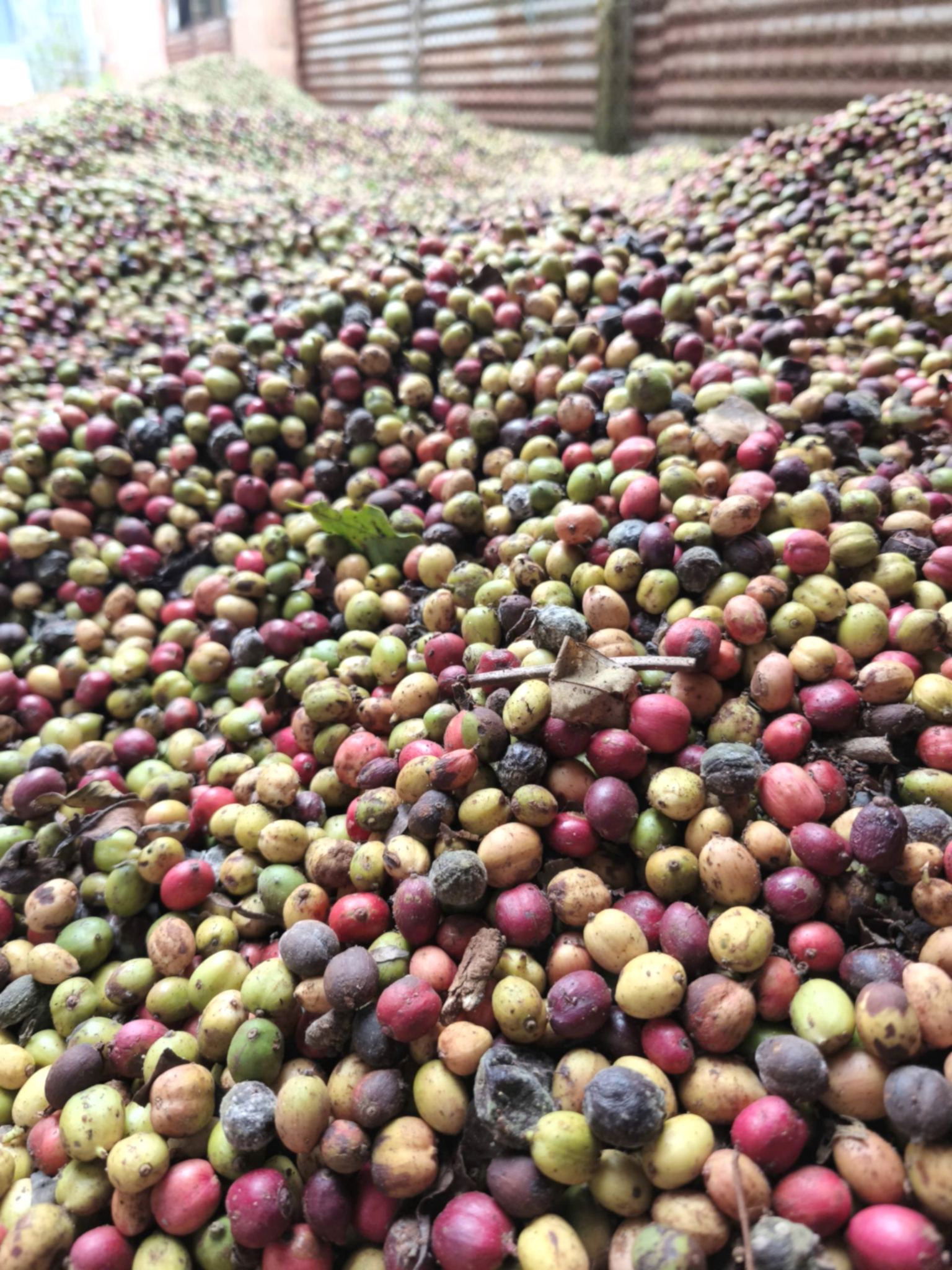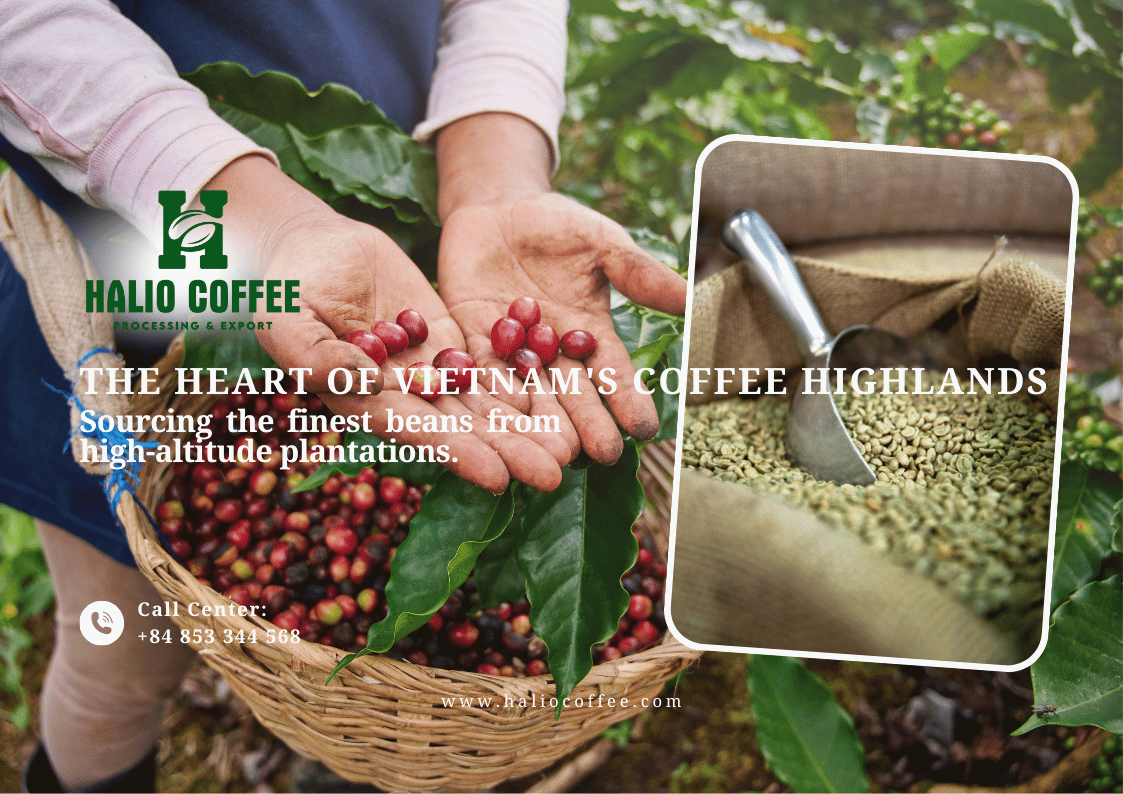Arabica Coffee Supplier for Cafés & Roasteries: A Strategic Partnership for Quality and Growth
For cafés and roasteries, the choice of an Arabica Coffee Supplier is perhaps the most critical decision impacting their product quality, brand reputation, and ultimately, profitability. In a market increasingly driven by consumer demand for transparency, sustainability, and exceptional flavor, a reliable supplier is more than just a vendor; they are a strategic partner. From Buon Ma Thuot, Dak Lak, Vietnam, on July 26, 2025, we analyze the essential aspects of selecting and collaborating with an Arabica Coffee Supplier to ensure success in the competitive coffee industry.
1. Understanding the Needs of Cafés & Roasteries
Cafés and roasteries operate at different scales and have distinct, yet often overlapping, needs when it comes to sourcing Arabica coffee.
1.1 Needs of Cafés
- Consistent Quality: Customers expect the same great taste every time. Cafés need beans that deliver consistent flavor profiles for espresso, pour-overs, and other brew methods.
- Reliable Supply: Running out of coffee means lost sales. A supplier must ensure timely and consistent delivery, especially for high-volume operations.
- Variety of Profiles: While a signature house blend is key, many cafés offer single origins or seasonal specials, requiring access to a diverse range of Arabica profiles.
- Grind and Roast Consistency (if purchasing roasted): If the café is not roasting in-house, they rely heavily on the supplier’s roasting consistency and proper grinding for their equipment.
- Customer Service & Support: Quick response to inquiries, troubleshooting, and potentially training support for staff.
- Fair Pricing: Competitive pricing that allows for healthy margins, especially for high-volume consumption.
- Sustainability & Ethics: Increasingly, café customers care about the ethical sourcing and environmental impact of their coffee.
1.2 Needs of Roasteries
- Green Bean Quality (Cupping Score): Roasteries require high-quality green beans (often 80+ SCA points for specialty) to craft their unique roasted products. They need detailed green bean analysis and cupping reports.
- Diverse Origins & Processing Methods: To create unique blends and offer diverse single origins, roasteries need access to Arabica from various regions with different processing methods (washed, natural, honey).
- Traceability & Transparency: Knowing the origin, farm, varietal, and processing details is crucial for storytelling and meeting consumer demand for transparency.
- Volume & Scalability: Suppliers must be able to provide quantities ranging from micro-lots to full container loads, adapting to the roastery’s growth.
- Freshness & Storage: Green beans must be from the current crop year and stored optimally (e.g., in GrainPro bags) to preserve quality.
- Logistics & Import Expertise: For international sourcing, roasteries rely on suppliers who can manage complex shipping, customs, and documentation.
- Relationship & Market Insights: A strong partnership with a supplier can provide invaluable market intelligence, helping roasteries anticipate trends and secure future supply.
2. Key Attributes of an Exceptional Arabica Coffee Supplier

Choosing the right Arabica Coffee Supplier involves evaluating several critical attributes beyond just price.
2.1 Green Bean Quality and Selection Expertise
- Rigorous Sourcing: A top-tier supplier meticulously sources green Arabica beans directly from farms or reputable cooperatives. They have strong relationships with producers, ensuring consistent access to high-quality crops.
- Expert Cupping & Grading: The supplier should employ certified Q-graders (or equivalent) and maintain a professional cupping lab to rigorously assess and classify coffee quality according to SCA standards. They should provide detailed cupping notes and defect analysis.
- Diverse Portfolio: Offering a wide range of Arabica varietals, origins (e.g., from Vietnam’s Cau Dat, Son La, or international regions), and processing methods to meet varied client needs.
- Freshness & Storage: Committed to providing beans from the most recent harvests and storing them in optimal conditions (temperature, humidity, specialized packaging like GrainPro bags) to preserve quality.
2.2 Transparency and Traceability
- Farm-to-Roastery Transparency: A reputable supplier provides detailed information about the coffee’s origin, including the specific farm, cooperative, region, altitude, varietal, and processing method.
- Ethical and Sustainable Sourcing: They should be able to demonstrate commitment to ethical labor practices, environmental sustainability, and fair compensation for farmers. Certifications (Organic, Fair Trade, Rainforest Alliance, 4C) are strong indicators, but direct relationships and impact reports are even better.
- Compliance with Regulations: Crucially, for international trade (especially to the EU), the supplier must have robust systems to comply with regulations like the EU Deforestation Regulation (EUDR) (effective December 2024), providing farm-level traceability and proof of deforestation-free sourcing.
2.3 Logistics and Supply Chain Management
- Reliable Delivery: A proven track record of timely and consistent delivery, whether it’s local distribution or international shipping. This is where a strong fresh coffee distributor network is paramount.
- Efficient Order Fulfillment: Streamlined processes for order placement, tracking, and customer communication.
- Proper Packaging: Utilizing industry-standard packaging that protects the green beans (e.g., jute bags with GrainPro liners for specialty grades) from moisture, contamination, and physical damage during transit and storage.
- Inventory Management: The ability to manage inventory effectively to meet fluctuating demand, offering spot buys as well as long-term contracts.
2.4 Customer Service and Support
- Responsiveness: Prompt communication and quick resolution of any issues or inquiries.
- Market Insights: Providing valuable information on market trends, crop forecasts, and new origin opportunities.
- Technical Support: Offering expertise on green bean characteristics, roasting recommendations, or even brewing tips for cafés.
- Partnership Approach: Viewing clients as long-term partners, offering flexible solutions and adapting to evolving needs.
3. Sourcing Arabica Coffee from Vietnam: A Growing Opportunity for Cafés & Roasteries
Vietnam, from its burgeoning Arabica regions, is increasingly establishing itself as a viable and attractive source for Arabica Coffee Suppliers to the global market, particularly for specialty and premium grades.
3.1 Advantages of Vietnamese Arabica
- Unique Flavor Profiles: Vietnamese Arabica, especially from Cau Dat, offers distinct characteristics (e.g., chocolatey, nutty, balanced acidity) that can diversify a roastery’s portfolio or provide a unique house blend profile for a café.
- Improving Quality: Significant investments in cultivation practices, selective harvesting, and advanced processing (washed, honey, natural) are consistently elevating the quality of Vietnamese Arabica.
- Competitive Value: Often provides a competitive price point for its quality compared to more established Arabica origins, offering better margins for cafés and roasteries.
- Growing Sustainability & Traceability: Increasing adoption of sustainable farming methods and robust traceability systems by Vietnamese suppliers aligns with global consumer demand for ethical sourcing.
3.2 Challenges and Considerations
- Volume & Consistency: While growing, the overall volume of specialty-grade Arabica in Vietnam is still smaller than Robusta, which might require diversified sourcing for very large buyers. Ensuring consistency across many small farms requires diligent supplier management.
- Climate Variability: As observed in early 2025 in Dak Lak and other regions, climate change (e.g., droughts) can impact yields and quality, necessitating flexible sourcing strategies.
- Navigating EUDR: For EU-bound coffee, the implementation of EUDR requires Vietnamese suppliers to provide farm-level deforestation-free data. Choosing a supplier prepared for this is crucial for market access.
4. Building a Successful Partnership with an Arabica Coffee Supplier

For cafés and roasteries, finding the right Arabica Coffee Supplier is about forging a long-term, mutually beneficial relationship:
- Clearly Define Your Needs: Before searching, identify your precise quality requirements (cupping scores, flavor profiles), volume needs, desired certifications, and budget.
- Research & Vet Potential Suppliers: Look for suppliers with a strong reputation, transparency in their operations, and positive client testimonials. Engage with them to understand their sourcing philosophy and quality control.
- Request Samples & Conduct Blind Cuppings: Always test samples thoroughly. For roasteries, this means green bean analysis and multiple roast profiles. For cafés, it means brewing and tasting across different methods.
- Discuss Logistics & Support: Understand their delivery capabilities, lead times, minimum order quantities, and after-sales support.
- Evaluate Sustainability & Ethics: Inquire about their direct relationships with farmers, social programs, and environmental initiatives. Ask for certifications or impact reports.
- Negotiate Flexible Contracts: For long-term supply, discuss contract options (fixed price, differential, volume discounts) that offer both stability and flexibility.
- Open Communication: Maintain continuous, open dialogue with your supplier. Share feedback, discuss market changes, and collaborate on future needs.
Conclusion
The selection of an Arabica Coffee Supplier is a cornerstone for the success of any café or roastery. It extends beyond a simple transaction; it’s about establishing a strategic partnership built on trust, quality, and shared values. As Vietnam continues to expand its production of high-quality Arabica, it presents an exciting and increasingly viable origin for global buyers. By prioritizing attributes like rigorous quality control, transparency, robust logistics, and exceptional customer service, cafés and roasteries can secure the premium Arabica beans they need to delight their customers and thrive in an ever-evolving coffee landscape. A diligent approach to supplier selection, especially by partnering with a knowledgeable fresh coffee distributor, will pave the way for consistent quality and sustainable growth.
- Coffee Prices Today, September 10: Stronger U.S. Dollar Puts Pressure on Coffee Markets
- Direct Trade Vietnamese Robusta Coffee: Opportunities for Global Roasters and Distributors
- The Organic Premium: A Deep Dive into the Vietnam Organic Green Coffee Price EU
- Coffee Prices Today, Nov 15: London’s 5th Consecutive Drop, Domestic Prices Fall Below 110,000 VND/kg
- The Global Sourcing Map 2026: Identifying the Best Place to Buy Green Coffee Beans







